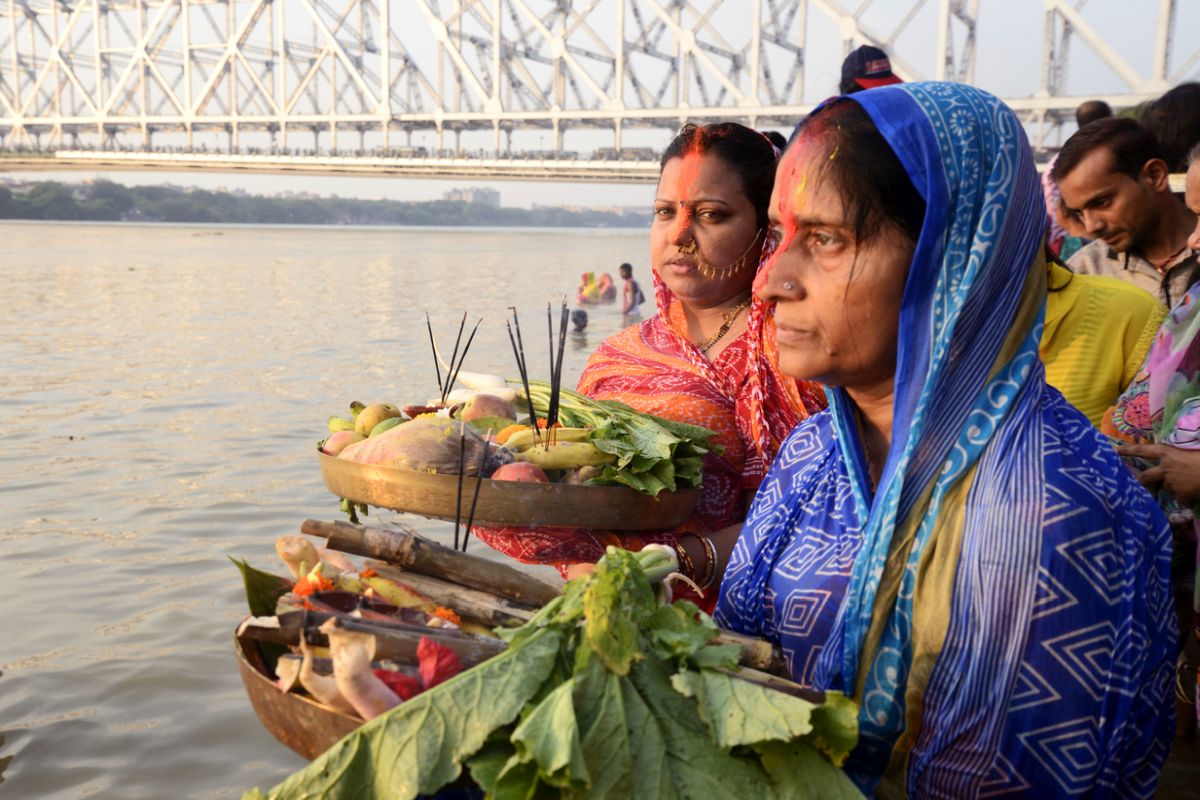Chhath Puja is performed on Kartika Shukla Shashthi, which is the sixth day of Kartika in the Vikram Samvat or the Hindu calendar. This year it falls on 2nd November according to the Gregorian calendar.
Chhath Puja is a four-day festival which is observed most elaborately in Indian states of Bihar, Jharkhand and UP, including Madhesh (southern) region of Nepal.
Advertisement
Goddess Usha, or the wife of the Sun God, is worshipped during the famous Chhath Puja. The deity is more famously called Chhathi Maiya. This is the only festival that worships both the rising and the setting Sun.
During Chhath Puja there is no idol worship but the Sun is worshipped, which is the ultimate source of energy on the Earth and sustains life. Hence, this festival is considered to be a way to pay tribute to the selfless Sun regardless of caste, religion or creed.
The festival of Chhath is observed with very strict regulations. The main worshipper, called parbaitin (man or woman who fasts for four consecutive days), keeps the least attachment with the family and worldly pleasures. They sleep on mats or bare floor and do not touch generalized materials to maintain chastity and purity.
The food cooked at homes is free of too many spices, including ginger, garlic and onions.
On the first day of the festival, the parbaitin purifies themselves and surroundings with Gangajal (the holy water from river Ganga) and takes only one meal, Kaddu-bhat (rice and bottle gourd with pulses) which is cooked in bronze or clay pots over a clay stove.
The devotee holds fast for the full second day and breaks the fast only after worshipping the Sun God in the evening with Rasiao-kheer (rice cooked in sugarcane juice), puris and fruits. Here begins a fast for next 36 hours.
The third day, the entire household accompanies the parbaitin to a riverbank, pond or a common large water body to offer Arghya (pure milk and gangajal) to the setting sun. It is during this phase of Chhath Puja that the devotees offer prayers to the setting sun. The parbaitins carry ‘soop’ in their hands and stand in the water facing the setting Sun.
On the fourth and final day, the devotees offer Arghya to the rising Sun as well as the setting Sun. Post the offering, the Prasad in the ‘soop’ is distributed among family, friends and onlookers and people take the blessings of the parbaitin. Parbaitin is considered to be holy because he/she undertook the rigorous four-day fast with God bestowing His blessings directly on him/her.
The ‘soop’ has the ‘prasad’ which comprises of thekua, sugarcane, laddoos, fruits, big lemon, dry fruits and many other edibles including vermillion and lightened earthen lamps. The occasion is almost a carnival. Besides the parbaitins, there are friends and family and numerous participants and onlookers, all willing to help and receive the blessings of the worshipper.











